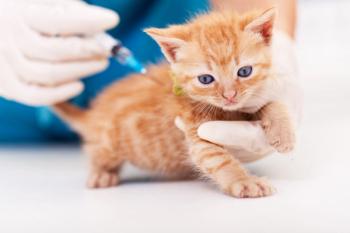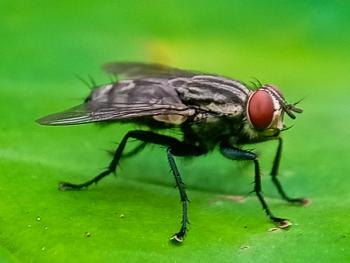
UC Davis corrects horse’s irregular heartbeat with electrical shock procedure
How the veterinary team approached the horse with this heart condition and an update on his recovery
Rio, an 8-year-old American Quarter Horse gelding, is the beloved horse of Alana Alpern, DVM, and her family who was bred, born, and raised on the family farm in Texas. Rio recently fell ill and Alpern knew exactly where to take him, her alma mater, the UC Davis School of Veterinary Medicine.
According to a university release,1 Rio presented to the Large Animal Clinic at UC Davis having been diagnosed with atrial fibrillation, an irregular heart rhythm, and a common equine cardiac problem. Over 15 years ago, when Alpern was a student at UC Davis, the school was among the few places in the nation performing transvenous electrical cardioversion (TVEC), a procedure that shocks the heart back into a regular rhythm. Since Alpern graduated in 2007, the school has performed only a number of TVEC procedures because of the lack of essential equipment over the past decade.1
“It’s been a long time since we’ve performed a TVEC at UC Davis,” said Jessica Morgan, DVM, PhD, of the equine field service, in the release. “But I gained a lot of experience with them in my time as a clinician at the University of Pennsylvania, so we have the right team and equipment to offer that option again.”1
Morgan consulted with Fiona Wensley, BVM&S, MRCVS, DACVIM, in the equine medicine service treating Rio, the cardiology service, and the anesthesia service and Alpern to discuss the possibility of a TVEC being an option for Rio. “Rio had previously been given the drug quinidine, a medication commonly used for cardioversion, but it failed to correct his arrhythmia,” said Morgan. “Dr Alpern was looking for an opportunity to try something else, and we agreed that a TVEC was the answer.”
A cutaneous method—placing electrode paddles on the chest—is the preferred method of performing an electrical cardioversion on dogs and humans, however a horse’s large muscle mass does not allow the shock wave to reach the heart without causing deadly complications. Thus, veterinarians must approach the horse’s heart with electrodes on the tips of catheters placed across the heart through the horse’s veins.1
Two catheters were placed in Rio’s right jugular vein with one advanced into the left pulmonary artery and the other into the right atrium. Their positions were placed with the assistance of echocardiography and confirmed with X-rays of his chest. Then, Rio was anesthetized, and a shock wave produced by a life pack was sent to the electrodes to stun the atrium, enabling it to restart, according to the release.1
The procedure was successful, and Rio’s heart was shocked back into a regular (sinus) rhythm, confirmed by a post-procedure electrocardiogram. A follow-up echocardiogram several days after showed improvement of previous findings.
“From a cardiovascular standpoint, Rio has a good prognosis for return to athletic function, as long as he is able to maintain sinus rhythm,” shared Morgan. “He didn’t have any major complications with the procedure, and he hasn’t gone back into atrial fibrillation.”1
To reduce the chance of recurrence, Rio was placed on medication and Alpern has a cell phone-based electrocardiogram unit to monitor him at home. After 2 months, Alpern says that Rio is doing well and has returned to giving short rides to her children.
Reference
Warren R. Electrical shock procedure corrects horse’s irregular heartbeat. News release UC Davis School of Veterinary Medicine. May 31, 2023. Accessed June 8, 2023. https://www.vetmed.ucdavis.edu/news/electrical-shock-procedure-corrects-horses-irregular-heartbeat
Newsletter
From exam room tips to practice management insights, get trusted veterinary news delivered straight to your inbox—subscribe to dvm360.






